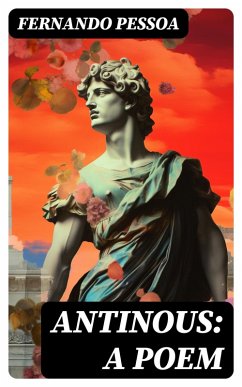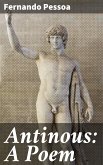In "Antinous: A Poem," Fernando Pessoa crafts a profound exploration of identity, desire, and the human condition through the lens of the tragic romance between the Roman Emperor Hadrian and his beloved Antinous. Written in his signature fragmented and multifaceted style, this poem integrates Pessoa's unique heteronymic approach, allowing readers to encounter various voices that traverse themes of beauty, mortality, and mysticism. The work draws on classical references while situating itself within the context of modernist poetic innovation, creating a symbolic dialogue between past and present that resonates with contemporary existential inquiries. Fernando Pessoa, a towering figure of early 20th-century Portuguese literature, often grappled with themes of self-identity and fragmentation, mirroring his own complex persona composed of various heteronyms. His extensive exploration of philosophical and artistic ideas-shaped by influences such as Symbolism and Modernism-led him to write "Antinous," reflecting his fascination with lost love, mythology, and the ephemeral nature of existence. Pessoa's intense introspection and deeply reflective style engender a rich environment for readers seeking to understand the profundities of human emotion. This exquisite poem is a must-read for those interested in the interplay of love and loss, as well as the tension between historical grandeur and personal quest. Pessoa's evocative language invites readers to engage intimately with his vibrant yet haunting portrayal of Antinous, making it an essential addition to the libraries of poetry enthusiasts and scholars alike.
Dieser Download kann aus rechtlichen Gründen nur mit Rechnungsadresse in A, B, BG, CY, CZ, D, DK, EW, E, FIN, F, GR, H, IRL, I, LT, L, LR, M, NL, PL, P, R, S, SLO, SK ausgeliefert werden.









